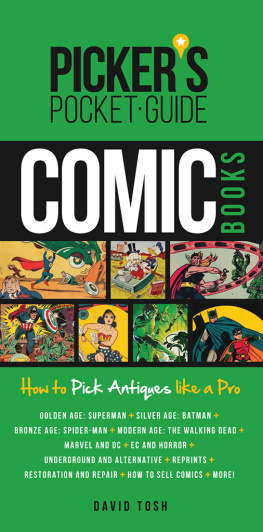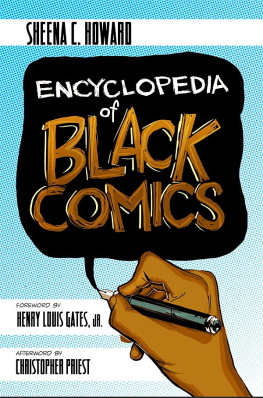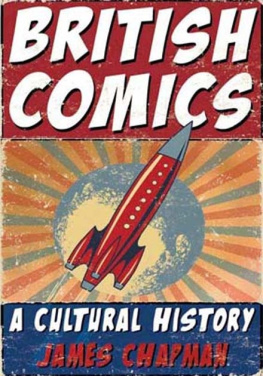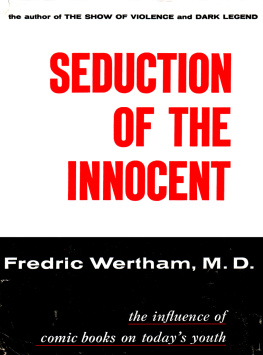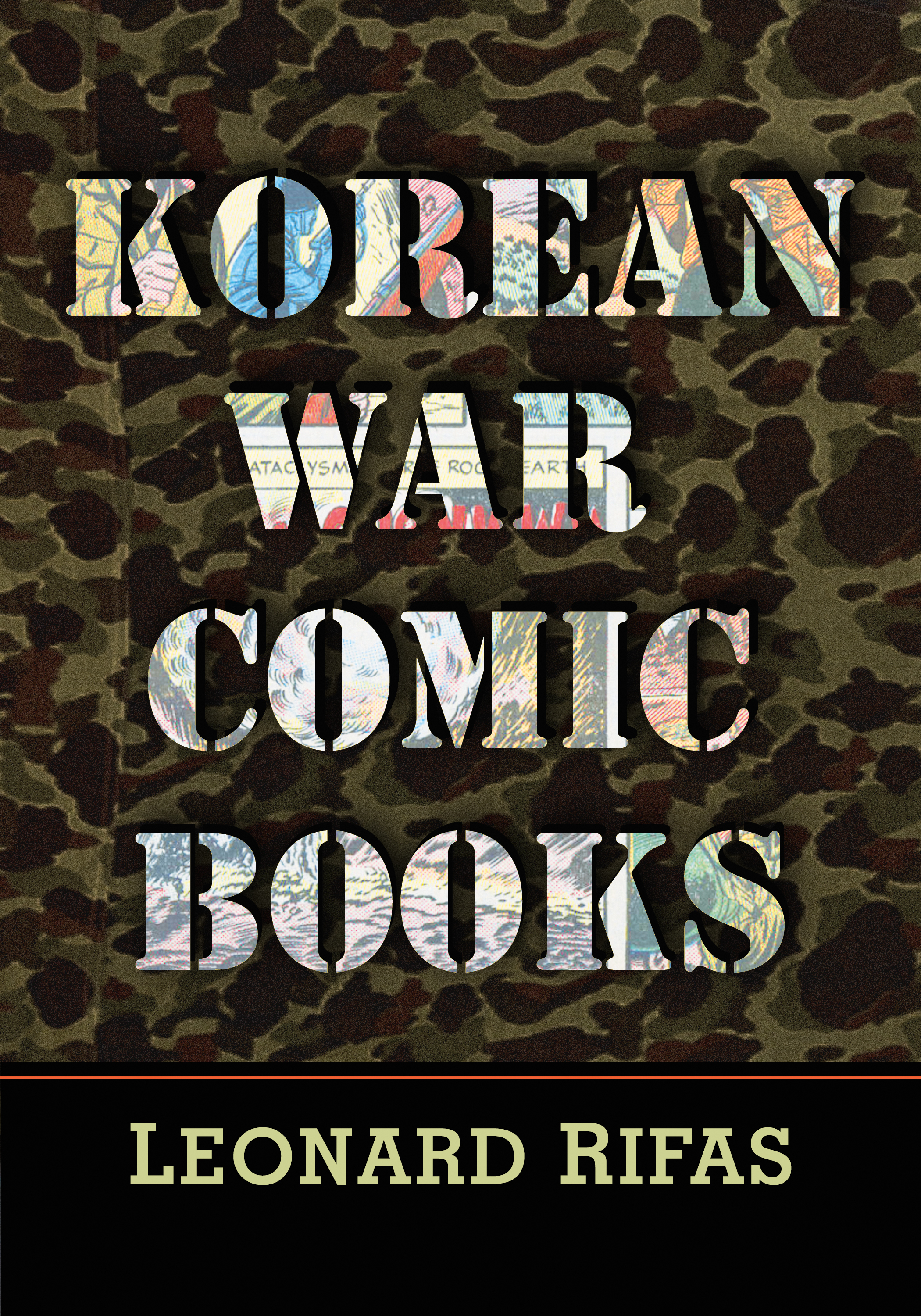Korean War Comic Books
Korean War Comic Books
Leonard Rifas

McFarland & Company, Inc., Publishers
Jefferson, North Carolina
Library of Congress Cataloguing-in-Publication Data
Names: Rifas, Leonard, author.
Title: Korean War comic books / Leonard Rifas.
Description: Jefferson, North Carolina : McFarland & Company, Inc., Publishers, 2021. | Includes bibliographical references and index.
Identifiers: LCCN 2020050986 | ISBN 9780786443963 (paperback : acid free paper) ISBN 9781476640488 (ebook)
Subjects: LCSH: Comic books, strips, etc.United StatesHistory20th century. | Korean War, 19501953Literature and the war. | CensorshipUnited StatesHistory20th century. | War in literature.
Classification: LCC PN6725 .R55 2021 | DDC 741.5/973dc23
LC record available at https://lccn.loc.gov/2020050986
British Library cataloguing data are available
ISBN (print) 978-0-7864-4396-3
ISBN (ebook) 978-1-4766-4048-8
2021 Leonard Rifas. All rights reserved
No part of this book may be reproduced or transmitted in any form or by any means, electronic or mechanical, including photocopying or recording, or by any information storage and retrieval system, without permission in writing from the publisher.
Front cover design by the author
Printed in the United States of America
McFarland & Company, Inc., Publishers
Box 611, Jefferson, North Carolina 28640
www.mcfarlandpub.com
Table of Contents
Preface
Pulled in by my longstanding love for comic books and by atomic-age feelings against war, I have become fascinated by a widely misunderstood chapter of comic book history and its part in the larger stories of American popular culture and American militarism. This book looks at how comic books represented the Korean War, as a way to understand both American comic books and the Korean War more deeply. It compares some of the stories that comic books made up about that war with stories that journalists reported at the time and with stories that historians have written about it. Beyond merely describing some differences between stories made to inform and stories made to entertain, this book examines various forces that shaped the material that appeared in American comic books in the early 1950s. Those shaping forces included both general alarms over the threats of nuclear war and totalitarianism and, more directly, an alarm over violent comic book content. I am especially interested in how those who fought against that periods crime comic books thought about Korean War comic books. This includes Dr. Fredric Wertham, who, more than anyone else, agitated against comic books alleged brutalization of the imagination.
In the United States, the Korean War has long been called the forgotten warand yet, measured by the number of Americans who died or were wounded, it was a larger war than the Revolutionary War, the War of 1812, the Mexican War, the Spanish-American War, the Gulf War, the Iraq War and the war in Afghanistan added together.
The short, dramatic, visual stories in old war comics help to illuminate a crucial transformation that happened in American culture in the early 1950s. At that time, the United States rapidly built a huge military establishment on the recently laid foundations of our still-existing war economy.
The war in Korea, which made this fast military buildup possible, was strongly supported by the core members of the American Establishment (that small group of men who decided Americas Cold War policies), but it became highly unpopular. How did comic books, perhaps the least elite, least censored and most controversial of the mass media, handle these changes and tensions? How did people use this then-popular medium to promote their favored ideas? How did they keep material that they disagreed with from being published in comic books?
Those who led the attack on comic books in the late 1940s and early 1950s regarded the stakes of their campaigns as immensely consequential. Although misremembered as people who were simply panicking over juvenile delinquency, their published criticisms of comic books returned again and again to a deeper question. These critics asked how the United States could prevent socially irresponsible, profit-driven publishers from inadvertently encouraging the nations slide into a barbaric future of dictatorship and endless war. To put this more positively, we might ask how could the United States build a popular culture appropriate to a peaceful and democratic society?
In this book, I have focused primarily on those stories that I could match to nonfiction accounts. These include stories about the origins of the Korean War, germ warfare charges, brainwashing, POW riots, atrocities, and comics with nuclear warfare themes. Focusing on these stories often turned out in practice to mean concentrating on comic book fictions that defended Americas self-image as a moral nation from enemy propaganda charges.
To understand the pressures that put limits on the comic book versions of the Korean War, I have closely studied the record left by those who took an active interest in what messages the comics were teaching. These included critics, journalists, researchers, citizen activists, government investigators, and comic book industry cartoonists, editors and publishers.
Most comic book representations of the Korean War appeared in ordinary newsstand entertainment comics of the war comics genre.
Most of my examples come from American war comics of the early 1950s, but at the time of the Korean War, comic books were recognized as a mass medium with many uses. I have also included examples of Cold War content from government-sponsored propaganda comics, political campaign comics, superhero comics, and educational comics. In addition, I have traced Korean War themes as they have appeared since the armistice was signed in 1953, including in underground comix, history comics, graphic novels and webcomics. I use just a few examples from comics published outside the United States.
The first comic book to respond to North Koreas June 25, 1950, invasion of South Korea carried a cover date of December 1950 ( War Comics #1 ). Most of the major events of the war had happened in those six months between June and December. In the first days of the invasion, the United Nations passed a series of resolutions to support South Korea. By August 1950, the North Koreans had swept through 90 percent of South Korea. UN soldiers then swept north through almost all of North Korea, reaching the Yalu River border with China. On Thanksgiving, the Americans still dreamed that they would be home for Christmas, and that they would leave behind a united Republic of Korea. Then the Chinese entered the war, and with the North Koreans, pushed the UN forces out of North Korea. By the dates printed on the first Korean War comics, the battle line lay close to the original line separating North and South Korea, at which point the war became stalemated for over two years of deadly fighting.
The 1953 armistice included plans for a peace conference, but when that conference was held in 1954, the diplomats failed to agree on a peace treaty. For years, the United States has resisted signing a Peace Treaty to end the war, and Koreans in the North and South have persisted in their dreams of ending the division of the Korean Peninsula.
According to Fredric Wertham (whose words seem particularly relevant to the case of Koreas unfinished forgotten war), Wherever violence is disregarded and forgotten, it perpetuates itself. Wherever it remains unresolved, it persists as a focus of infection. Wertham compared a war without a proper peace to a murder which remains undetected, unpunished, and ununderstood. He warned that when past violence is not recorded, lamented, condemned and elucidated, the seeds of future violence are sown.


